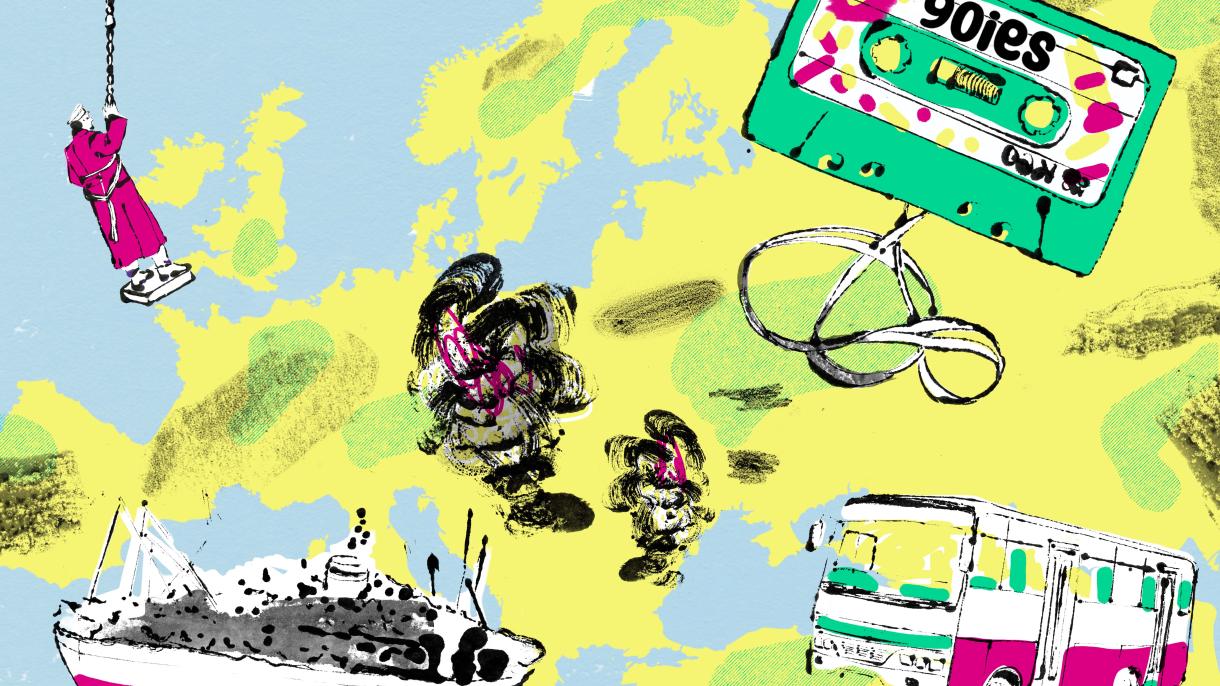
Conference
- Tuesday, 21. May 2024 10:00 am – 9:30 pm Save in my calendar
- Wednesday, 22. May 2024 10:00 am – 12:00 pm Save in my calendar Save all dates in my calendar
12th European History Forum
When does contemporary history begin? The historical-scientific examination of the 1990s in Europe
There is hardly a historical narrative about the period between 1990 and 1995 whose content is not at the same time the subject of current political controversies - especially, but not only, in the post-socialist countries of South-Eastern and Eastern Europe. How did the dissolution of the Soviet Union and the founding of new independent states come about? What caused the break-up of Yugoslavia and how did the violent conflicts in the Western Balkans arise? What socio-economic fractures occurred, who were the winners and losers? How did states and societies change? Where was there democratic consolidation, where authoritarian stagnation or even regression?
Almost all current developments in Europe are the result of the upheavals of the 1990s; hardly any of the conflicts at the time appear to have been permanently resolved, which is why talking about the decade still triggers fierce daily political debates in the region's societies. A differentiated historicization of the events on the basis of scientific research is therefore very difficult and encounters on the one hand the controversial memories of contemporary witnesses and those affected, and on the other hand the resistance of those who insist on their version of history for current political or propagandistic reasons.
Our 12th European History Forum would like to use selected topics and examples to explore the question of whether and how critical historiography and didactics can convey a differentiated, perspective-rich picture of the upheaval of the 1990s based on modern research that avoids the current political polarization and instrumentalization. To what extent is a historical-academic examination of this eventful decade possible at all? How can critical research be conducted on this period given the social polarization and political instrumentalization? What sources are accessible? Are there examples of successful supranational and multi-perspective approaches to the experience of war and far-reaching socio-economic change?
The "European History Forum" conference series, which has been organized by the Heinrich Böll Foundation since 2011, especially aims to offer young historians, museum staff, journalists and activists from non-governmental organizations with a focus on Eastern and South-Eastern Europe an opportunity for exchange. In this way, a pan-European discourse on memory cultures and history policy is to be promoted. At the same time, the Forum is aimed at all those who deal critically with the history of the 20th century and its communication in a professional, voluntary or private capacity.
With:
- Claudia Kraft, University of Vienna Wien
-
Andrii Portnov, Viadrina Centre of Polish and Ukrainian Studies, Frankfurt/O
-
Giorgi Maizuradze, Ilia State University, Tbilisi
- Ivan Ejub Kostić, Institute for Philosophy and Social Theory, Belgrade
-
Nihad Kreševljaković, MESS International Theatre Festival, Sarajevo
and others.
Evening program: ca 20.00 - 21.30 h 
Book presentation "The lack of light" with Nino Haratishvili and discussion
In German-English with simultaneous translation.
Information:
Nina Happe
East and Southeast Europe Division
E nina.happe@boell.de
» Participation on site
at the the Heinrich-Böll-Stiftung Conference Center, Schumannstr. 8, 10117 Berlin
Please register. Unfortunately, the number of seats is limited. Should the room capacity be exhausted, we will transmit the conference via video to other rooms. We would like to point out that there is no entitlement to a seat in the room.
» Livestream
Alternatively, you can follow the event via the livestream without registering.
Livestream May 21st 10am - 6pm
Livestream May 22nd 10am - 12pm
Files
- Timezone
- CEST
- Address
-
Heinrich-Böll-Stiftung - Headquarter Berlin
Schumannstr. 8
10117 Berlin
- Accessibility
- Language
- English
- Livestream
- Watch livestream
